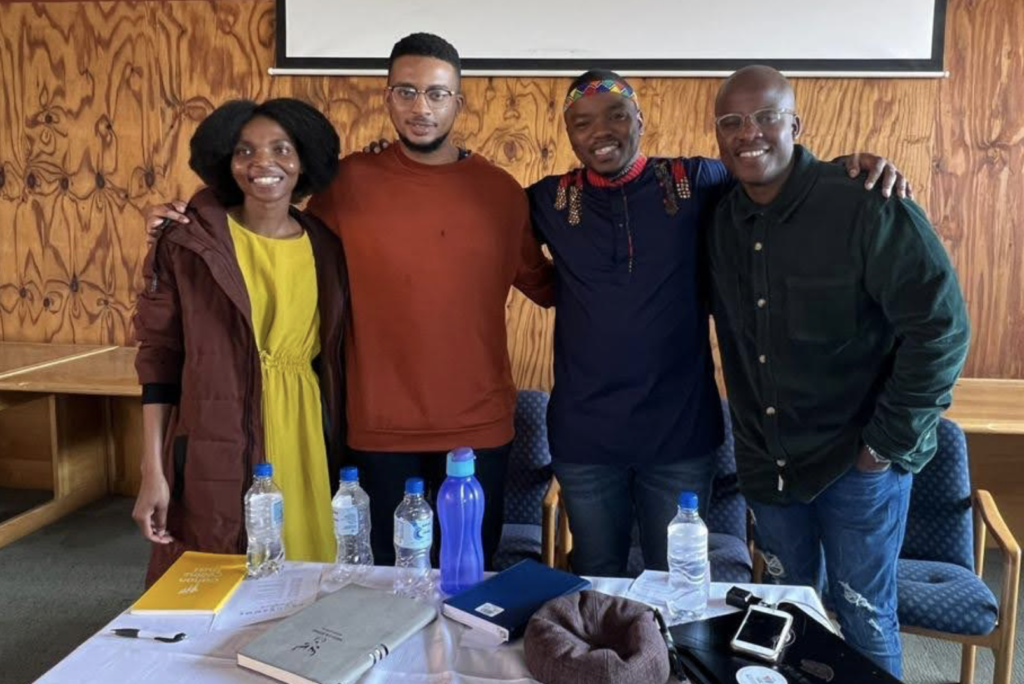
The challenge that the project addresses
In 2017, I received the Wells Mountain Initiative (WMI) Scholarship to pursue my undergraduate degree at the University of South Africa. As a WMI scholar, I was required to dedicate at least 100 hours to community service. Living near an informal settlement in Johannesburg, I discovered that many children lacked access to education due to insufficient documents and funds. With a friend’s help, we established the Booysens Basic Literacy & Numeracy School, a holiday program that evolved into career guidance and mentorship initiatives in Bulawayo and Johannesburg. These programs aim to bridge the gap between secondary, high school, and university levels, empowering students to reach their full potential.
What is your project doing to respond to this challenge?
We have rebranded our pioneering initiative from ‘Booysens Basic Literacy & Numeracy School’ to ‘LifeLong Learning Initiative’. Our new name reflects our belief that formal learning should continue once one acquires a post-high school qualification. Unfortunately, many young people face challenges in achieving this goal. To address this, our initiative offers:
Career guidance sessions:
We have conducted sessions in Bulawayo and Johannesburg, targeting high school students and attracting neighbouring schools. Strategic facilitators from diverse fields share their career journeys, followed by Q&A and consultation desks for specific fields.
Virtual follow-up and consultations:
We share facilitators’ contacts with attendees, enabling ongoing support. We have seen mentees advance in their careers, and we assist with CV crafting, university applications, and scholarship searches.
Online Career Opportunities Group:
Our WhatsApp group shares job vacancies, university notifications, and scholarships, further supporting our mentees
Describe the project's impact
Easy access to career development information:
Unlike South Africa, where free Wi-Fi is widespread, Zimbabwe has limited and expensive internet access. Our WhatsApp group bridges this gap, making career resources readily available to our mentees.
Expert one-on-one coaching:
While schools offer career guidance, they often need ongoing mentorship. We provide personalised support, connecting mentees with experts who share relevant information, answer questions, and provide industry insights, helping them navigate their career paths.
Support for undocumented students:
We have become a trusted resource for schools and students facing issues related to lack of documentation, such as birth certificates. We connect them with organisations like Justice for Children Trust and Zimbabwe Lawyers for Human Rights, ensuring they receive timely assistance and support.
We intend to utilise the R20,000 award to enhance our project’s impact in three key areas:
(a) Visibility: We will hire a professional photographer to capture high-quality images and videos of our programs, enabling us to showcase our impact on platforms like LinkedIn and Facebook.
(b) Programmes: The funds will cover essential expenses such as transportation, refreshments, internet access, and venue rentals, allowing us to expand our reach and accessibility. We will secure central venues like Bulawayo City Hall, making our programs more accessible to a broader audience.
(c) Growth: We will establish a structured operational framework, defining roles and responsibilities among volunteers. This will involve physical meetings, requiring transport and stationery resources. The award will facilitate these meetings, enabling us to solidify our structure, draft a constitution, and establish a recognisable initiative.
By allocating the funds in this way, we will significantly enhance our project’s visibility, program quality, and organisational capacity, ultimately amplifying our impact and reaching more young people with our career guidance and mentorship services.
